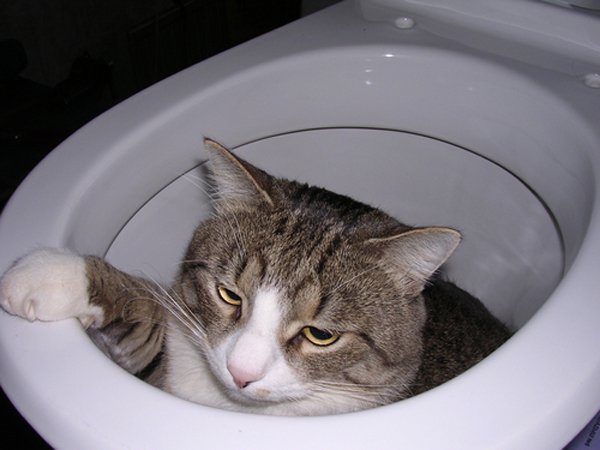Why Flushing Cat Poop Down Your Toilet Is Harmful - Suggestions for Proper Disposal
Why Flushing Cat Poop Down Your Toilet Is Harmful - Suggestions for Proper Disposal
Blog Article
The publisher is making several good annotation relating to How to Dispose of Cat Poop and Litter Without Plastic Bags as a whole in this great article underneath.

Introduction
As feline proprietors, it's vital to bear in mind just how we take care of our feline close friends' waste. While it might seem hassle-free to flush pet cat poop down the bathroom, this practice can have destructive repercussions for both the setting and human health and wellness.
Environmental Impact
Flushing cat poop introduces harmful microorganisms and bloodsuckers right into the water supply, presenting a significant danger to marine ecological communities. These pollutants can adversely impact aquatic life and compromise water quality.
Health Risks
Along with environmental worries, flushing feline waste can also present wellness dangers to people. Cat feces might include Toxoplasma gondii, a bloodsucker that can trigger toxoplasmosis-- a potentially extreme disease, specifically for expecting ladies and people with damaged body immune systems.
Alternatives to Flushing
Thankfully, there are safer and extra responsible means to throw away feline poop. Think about the complying with alternatives:
1. Scoop and Dispose in Trash
The most common method of disposing of cat poop is to scoop it right into an eco-friendly bag and toss it in the trash. Make sure to make use of a specialized litter inside story and throw away the waste immediately.
2. Use Biodegradable Litter
Opt for eco-friendly feline clutter made from products such as corn or wheat. These clutters are environmentally friendly and can be safely thrown away in the garbage.
3. Bury in the Yard
If you have a backyard, think about hiding pet cat waste in a marked area away from vegetable yards and water sources. Be sure to dig deep enough to prevent contamination of groundwater.
4. Install a Pet Waste Disposal System
Purchase a family pet garbage disposal system specifically designed for pet cat waste. These systems make use of enzymes to break down the waste, lowering odor and environmental effect.
Verdict
Accountable pet ownership prolongs past providing food and shelter-- it likewise involves appropriate waste management. By refraining from purging cat poop down the toilet and opting for different disposal techniques, we can lessen our ecological impact and safeguard human health.
Why You Should Never Flush Cat Poop Down the Toilet
A rose by any other name might smell as sweet, but not all poop is created equal. Toilets, and our sewage systems, are designed for human excrement, not animal waste. It might seem like it couldn’t hurt to toss cat feces into the loo, but it’s not a good idea to flush cat poop in the toilet.
First and foremost, assuming your cat uses a litter box, any waste is going to have litter on it. And even the smallest amount of litter can wreak havoc on plumbing.
Over time, small amounts build up, filling up your septic system. Most litter sold today is clumping; it is made from a type of clay that hardens when it gets wet. Ever tried to scrape old clumps from the bottom of a litter box? You know just how cement-hard it can get!
Now imagine just a small clump of that stuck in your pipes. A simple de-clogger like Drano isn’t going to cut it. And that means it’s going to cost you big time to fix it.
Parasitic Contamination
Believe it or not, your healthy kitty may be harboring a nasty parasite. Only cats excrete Toxoplasma in their feces. Yet it rarely causes serious health issues in the cats that are infected. Most people will be fine too if infected. Only pregnant women and people with compromised immune systems are at risk. (If you’ve ever heard how women who are expecting are excused from litter cleaning duty, Toxoplasma is why.)
But other animals may have a problem if infected with the parasite. And human water treatment systems aren’t designed to handle it. As a result, the systems don’t remove the parasite before discharging wastewater into local waterways. Fish, shellfish, and other marine life — otters in particular — are susceptible to toxoplasma. If exposed, most will end up with brain damage and many will die.
Depending on the species of fish, they may end up on someone’s fish hook and, ultimately on someone’s dinner plate. If that someone has a chronic illness, they’re at risk.
Skip the Toilet Training
We know there are folks out there who like to toilet train their cats. And we give them props, it takes a lot of work. But thanks to the toxoplasma, it’s not a good idea.

Hopefully you enjoyed reading our part on How to Dispose of Cat Poop and Litter Without Plastic Bags. Many thanks for taking a few minutes to browse our piece. Don't hesitate to take the time to promote this post if you liked it. Thank-you for going through it.
Details Report this page